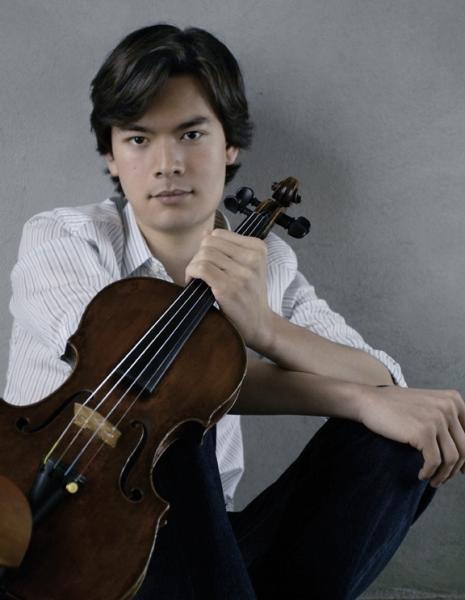Violinist Jackiw proves the bright spot in Boston Philharmonic opener

Stefan Jackiw performed Prokofiev's Violin Concerto No. 2 Thursday night with the Boston Philharmonic.
An otherwise unexceptional opening night performance by Benjamin Zander and the Boston Philharmonic Thursday evening at Sanders Theater was enlivened considerably by an old friend.
Not that 28-year-old violinist Stefan Jackiw could be considered old, mind you. But the Boston native, whose career has an international luster now, is well into his second decade of performances here in Boston, and, as Zander fondly remembered from the stage when introducing him, Jackiw actually spent years in the conductor’s preparatory orchestra as a youngster.
This was his fourth solo appearance with the Philharmonic and with a glistening reading of Prokofiev’s Violin Concerto No. 2, Jackiw showed why many proudly claim him as a native son.
Prokofiev was a distinctly different composer at different times in his life: some works serve up lyrical fare, some serve a vinegary mix of challenging rhythms and harmonies. The Second Violin Concerto, composed toward the end of his hiatus in the West in 1935, offers an unending supply of melodic sweetness.
Long lines from the soloist off a single chord in the home key (G minor) start the work, weaving a slightly bumptious rhythm until the orchestra joins in. A pattern is already established: for the most part, soloist will lead and orchestra will follow, sometimes verbatim, sometimes transposed an octave above or below, sometimes with the melody inverted.
It is the second movement that lingers longest, and where Jackiw engaged the audience most deeply. Opening with an infectious arpeggio plucked by the string sections, Jackiw gently drew out the duple-meter melody over the top in mesmerizing fashion. Just when it seemed impossible to get any more poignant, the strings—soloist included—all mute, lowerws the volume and intensified the appeal. The finale, avoiding histrionics, rises and falls in energy, Jackiw leading the ensemble as much as the conductor through its peaks and valleys.
For someone who speaks with such passionate eloquence about music, Zander is a remarkably traditional technician with the baton. He normally lectures at length before each of the works at his opening concerts, and this evening was no different. He tempered his remarks this time, giving succinct and appropriate musical examples for each work, as illustrations of major themes or musical ideas.
The format usually works well for his youthful orchestra, serving as something of an additional rehearsal. These performance were surprisingly stuffy, however. Both Sibelius’ tone poem Lemminkäinen and the Maidens of the Island and Strauss’ Don Quixote were intelligently explained, but cautiously conducted.
Both works use recurring motives for characterization. Maidens, a gorgeous piece with traditional structures but unusual harmonies, was leashed to Zander’s unrelenting emphasis on the beat.
Quixote had more color, for sure, and memorable solos, not only by principal cellist Rafael Popper-Keizer, but also principal oboist Amanda Hardy, artfully etching out the languid Dulcinea theme, violist Lisa Suslowicz, who labored dutifully as Sancho Panza, and concertmaster Charles Dimmick. But Strauss’s often unruly appeal was likewise limited, with Zander rarely engaging his sections from the podium, instead enumerating the downbeat with sterile precision.
The program repeats 8 p.m. Saturday at Jordan Hall and 3 p.m. Sunday at Sanders Theater. bostonphil.org; 617-236-0999.
Posted in Performances




